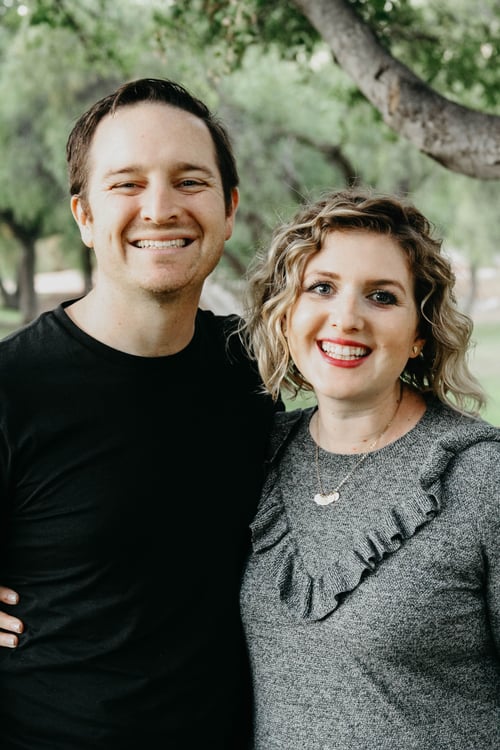 In the three years Alie and Tyler have been fostering infants and toddlers with Angels, they’ve had some real surprises. The biggest one is that they really do have time to care for a child in need.
In the three years Alie and Tyler have been fostering infants and toddlers with Angels, they’ve had some real surprises. The biggest one is that they really do have time to care for a child in need.
If any family might be short on time, it would be this one, who have two special-needs children of their own. Their five-year-old son, Owen, has albinism and was blind at birth. He is now able to see but has vision problems. Jack, their seven-year-old, was diagnosed with Asperger’s Syndrome two years ago.
Owen and Jack are good-natured little boys who enjoy reading and playing with Legos. They bring their family great joy, but also have full calendars with physical and occupational therapies. And the family carries with it the pain of losing an infant, Amelia, who was born with anencephaly, which inhibits brain development. Understandably, this loss has taken an emotional toll on Alie and Tyler.
With all of this on their plate, why would Alie and Tyler decide to take on fostering?
“Our heart was brought to growing our family,” says Alie. “We could either wait on a list for years to adopt or we could actively participate in changing children’s lives through fostering.”
The couple attended an Angels Foster Family Network information session and were moved beyond their expectations. “We cried our eyes out because we were suddenly aware of a need we didn’t know existed, and when you find out about it, you can’t turn your back on it,” she recalls.
Still, Alie and Tyler carefully deliberated because this was an important decision for the whole family. Alie had concerns about visitation with biological relatives. She says she struggles with anxiety and can find new situations overwhelming. “I don’t even like to go to a new store because I don’t know where I’m going to park, so finding the courage to potentially supervise visits was a lot.”
As it turned out, there has been limited visitation with the biological relatives of all three of the Alie and Tyler's placements. Typically, foster families schedule calls and visits with biological family members, but their cases have been unusual. “I had switched jobs to something that would involve fewer meetings, less travel, and more flexibility to be at home,” says Tyler. I thought that it would have given us more time to accommodate visits, but instead, I had extra time to spend with children who needed it most."
Their current placement “Rae” is a bouncy toddler who has been with them for a year and a half. They soon discovered that she had special needs too. After taking Rae to the emergency room twice for stomach pain, Alie and Tyler started monitoring the little girl’s diet and figured out Rae suffers from severe food allergies. In addition to improving the quality of Rae’s life by eliminating corn and dairy products, Alie discovered something about herself. “I didn’t realize my own strength,” Alie says. “I’ve learned to be unafraid to speak up and advocate for kids who don’t have a voice.”
The best surprise that has come from fostering is that, unlike their first two placements, Rae will likely be placed for adoption. Although reunification with biological family is always the goal in fostering, sometimes that is not possible. On these rare occasions, foster families may have the opportunity to adopt the child in their care. Alie and Tyler say they would gladly welcome the chance to make Rae part of their “forever family,” and are grateful that they permanently changed the lives of other children they fostered through Angels.



